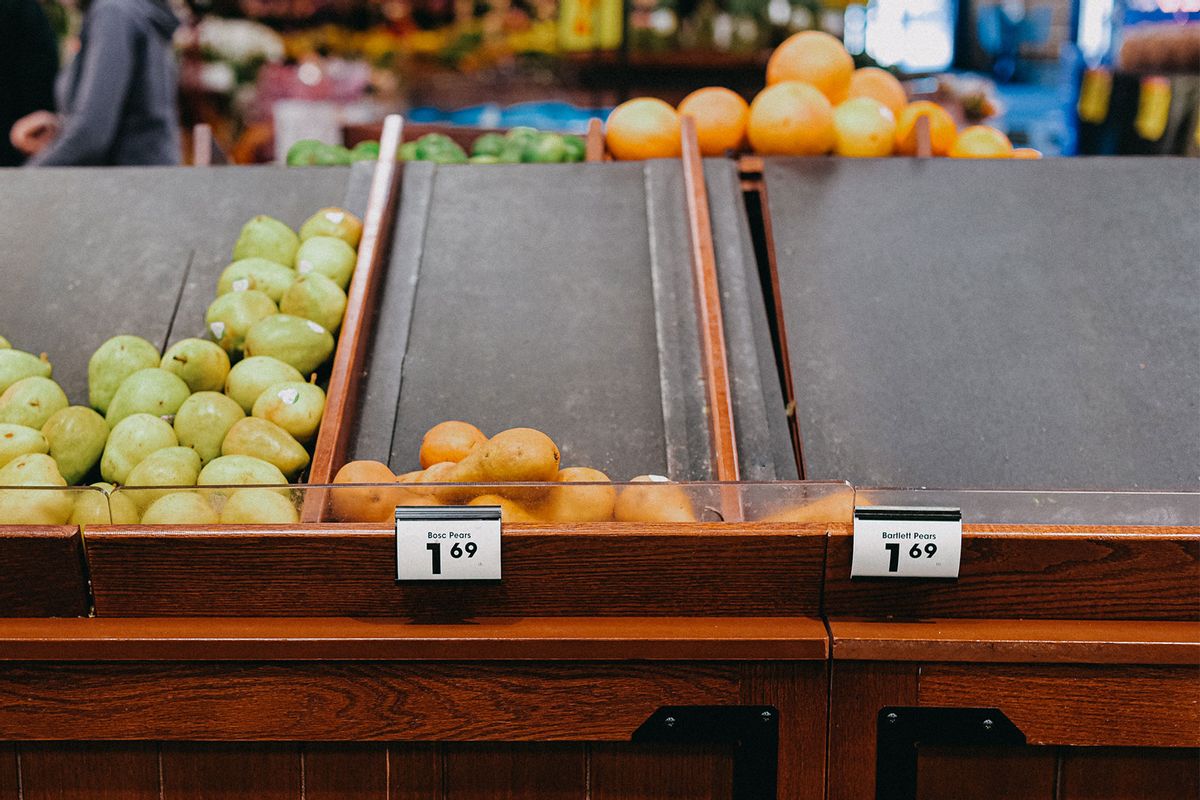Just a few days before Thanksgiving, new data from the Census Bureau’s Household Pulse Survey showed that nearly 28 million people reported experiencing food scarcity in October — both the highest number of 2023 and the highest number recorded by the survey since December 2020.
It’s already been a difficult year on the hunger beat as many of the pandemic’s comparatively supercharged nutrition benefits, which had kept millions of Americans out of food insecurity, expired. However, the same issues that had inspired bipartisan support for ramping up SNAP in 2020, including surging inflation, unemployment and an ongoing labor crisis, hadn’t disappeared.
In a March statement to Salon Food, Eric Mitchell, the executive director of the Alliance to End Hunger, wrote that there is never a good time to make it harder for people to buy food, but the cessation of those benefits came at a particularly brutal time. "With inflation and food prices still near record levels, it is still far too expensive for many Americans across the country to put food on the table," Mitchell said. "Without these extra dollars, millions of people will be at risk of hunger."
Food insecurity experts deemed that prospect a “looming hunger cliff” — and again and again this year, our country has fallen off the precipice. However, could a new year bring some relief?
There are some things working in favor of lessening food insecurity; inflation is finally slowing, though as reported by CNBC in September, it may take a while for the price of many consumer goods to go down accordingly.
“It is going to be more difficult for the Fed to wring extra inflation out of the economy,” Gus Faucher, chief economist at PNC Financial Services, told the publication.
This is actually having a dual impact on food insecurity in the country: When grocery prices are high, that’s when many Americans who haven’t traditionally qualified for SNAP (or who don’t qualify under this year’s newly introduced program stipulations) have relied on the assistance of community-based hunger groups like food pantries and soup kitchens. However, as Axios reported last week, while the demand for food bank services remains high, food bank donations have actually fallen.
According to a new report by Divert, Inc., nearly half of surveyed respondents said they are more likely to donate to food banks during the holiday season than at other times of the year.
“Yet, with the 2023 holiday season approaching — in which demand for food banks is expected to surge — only 25% of respondents said they are more likely to donate during this year’s holiday season compared to years past,” the report said. “Those who are donating less to food banks this season cite increasing food and grocery costs as the number one reason driving their decision.”
Per the report, this behavior is emerging despite “overwhelming knowledge among respondents that food insecurity is a growing concern.” Eighty-five percent of the survey respondents indicated they believed food insecurity levels increased since the COVID-19, with 63% believing that the U.S. is “significantly more food insecure” than the latest USDA data shows.
We need your help to stay independent
Food bank organizers and leaders are seeing the ground-level impact of the current hunger crisis. In a recent interview with USA Today, Susannah Morgan, president of Oregon Food Bank, described the situation as the “the logical result of 40 years of dire economic inequality.”
"This is the worst rate of hunger in my career," said Morgan, who has worked at food banks in Boston, San Francisco and Anchorage, Alaska. “It’s so large, it’s hard to wrap your head around."
There is a lot of government action that could have been taken to prevent this crisis, but one thing that could be done now in an effort to curtail the potential impact is by making the decision to fully fund the Special Supplemental Nutrition Program for Women, Infants, and Children, better known as WIC.
While WIC has traditionally enjoyed bipartisan support, as Politico reported, that consensus is now fraying, with House Republicans pushing to pare back WIC spending this year, arguing tough cuts are needed across the government amid the nation’s mounting debt. However, Georgia Machell, the interim president and CEO of the National WIC Association, argues making cuts to this particular program could have dire consequences.
Want more great food writing and recipes? Subscribe to Salon Food's newsletter, The Bite.
“For the nearly seven million women, infants and children who participate in WIC, the peace of mind that comes with knowing that WIC is on solid ground through the holidays is tempered by the growing uncertainty that looms when funding will expire on January 19,” Machell said in an emailed statement. “Congress has for months refused to consider the Administration’s urgent request for additional funds to cover WIC’s growing caseload.”
She continued: “That inaction increases the chances that states may have to start turning eligible participants away in 2024, or that current participants may at some point face benefit cuts. Either outcome would be unnecessary and unacceptable.”
So perhaps the question surrounding food insecurity in America these days isn’t so much, will things get better — but without appropriate intervention, how much worse can they get?
Read more
about this topic

Shares